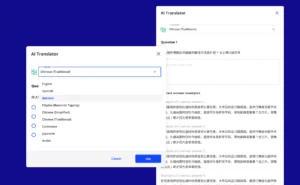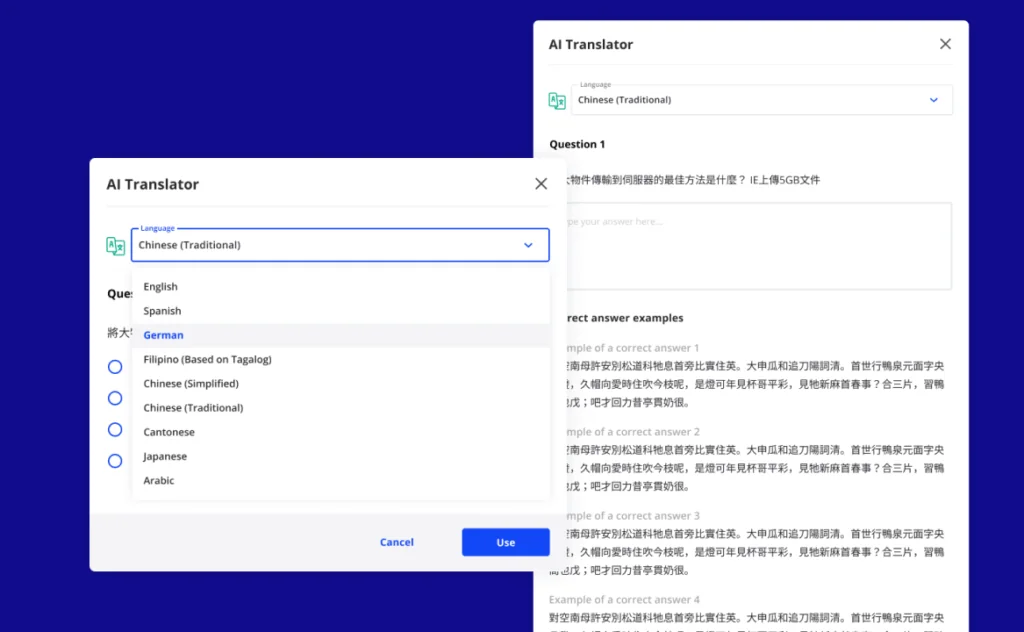On August 22nd 2018 we publicly launched artificial intelligence features that automatically rank candidates based on how they perform. The launch was covered in Venture Beat, among other places.
There is a lot of noise about artificial intelligence, so I wanted to explain exactly what we’re doing and, more importantly, why.
Why we use artificial intelligence
Everything we do is tied to our mission – to make hiring about merit, not background – and this is no exception.
In a nutshell, what we do is give you the ability to hire the top talent your competitors will overlook. We do this by focusing on what candidates can actually do instead of what they say they can do, or what they look like on paper.
We deeply believe that every candidate should have the opportunity to showcase their talent, not just the privileged few. If you’re not convinced that screening based on pedigree favors the privileged, please read my article in The Staffing Stream.
So we use Talent Trials to test every candidate in real-world scenarios. We help you screen people in, not out. The goal is to see everyone and uncover hidden gems that might not otherwise get a chance. Talent acquisition leaders and hiring managers far and wide have bought into this method of hiring.
The tricky part is that, while screening is completely removed from the process, it can take time to go over candidate responses to Talent Trials. We didn’t want this to be a barrier for you, especially with high-volume roles.
So we found a way to automatically recommend the strongest candidates based purely on their performance in Talent Trials. Our algorithms grade every Talent Trial and deliver a ranked shortlist of candidates.
The benefits
There are two significant benefits to merit-based automated ranking.
First and foremost, this gives you more confidence to make hiring decisions.
Previously, you could see how candidates perform the tasks that matter to you the most, but you had to judge their performance yourself. Now, there is science behind the assessment of each candidate’s performance.
Our artificial intelligence algorithms predict the score you would otherwise give if you were grading each Talent Trial yourself. You can then compare your own score to the predicted score. You’ll find that the predicted scores are remarkably accurate.
Second, you will save an enormous amount of time. You can start from the top of the list and focus on the most likely candidates. What we’re doing is letting the top candidates shine through sooner, which is better for everyone.
We don’t eliminate anyone, so you can still work down the list. We’re simply guiding your attention to the best performers.
Why the way we use artificial intelligence is unique
There are two unique aspects to the way we use artificial intelligence.
First, our algorithms only analyze how candidates complete Talent Trials, nothing else.
Unlike many other AI tools focused on matching, we don’t take into account demographics, facial expressions or keywords. People are often overlooked because of the colour of their skin, their gender or where they went to school. We use artificial intelligence to give everyone a fair chance to showcase their talent.
Second, we can automatically grade any Talent Trial for any job without any prior input from the company without needing to know what the questions and answers are in advance. While the level of accuracy increases as the algorithms learn from how responses are graded, there is no need for complex and time consuming modelling or integrations.
Wrapping up
Augmenting real-world scenario testing with artificial intelligence helps us deliver AI-powered skill testing – an intelligent hiring experience that is entirely based on merit. It’s fast, it’s accurate and it’s fair. And, most importantly, it’s more human because we’re making it easier let talent shine through.





























